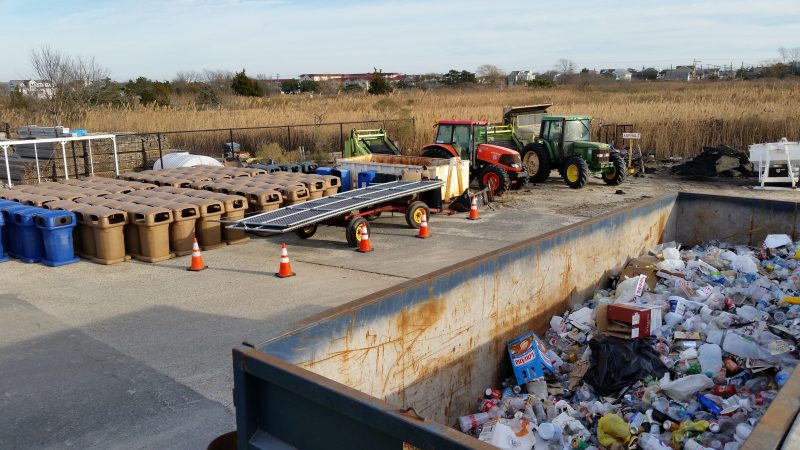By Donald Wittkowski
Ocean City will once again bring in a lobbying firm to help steer it through a regulatory morass as it begins the next phase of a multimillion-dollar dredging program to clear out its clogged lagoons and channels along the back bays.
Tonio Burgos and Associates of New Jersey LLC, a Trenton-based lobbying firm, will be paid $5,000 per month in 2017 under a contract scheduled to be awarded by City Council at its meeting Thursday. The contract is potentially worth up to $60,000, but the city has told Tonio Burgos that its services may not be required throughout the entire year.
The company was originally hired by the city last January to perform the same services in 2016. At that time, Mayor Jay Gillian said a lobbying firm was needed to guide the city through a thicket of state and federal environmental regulations that govern dredging projects along the Jersey Shore.
The City Council resolution authorizing the Tonio Burgos contract notes that the company has experience helping other New Jersey municipalities with their dredging programs.
Gillian and other Ocean City officials have complained in the past that the dredging program has been hampered by onerous regulations imposed by the state and federal agencies that oversee the environmental permits.

Mayor Jay Gillian, speaking at a dredging meeting on Dec. 10, believes a lobbying firm can help the city with its regulatory requirements.
Tonio Burgos will develop a strategy to cut through government red tape and secure public funding for the 2017 dredging program. It will also collaborate with the city’s dredging consultant, ACT Engineers Inc., to acquire the necessary permits and craft both short-term and long-range plans to complete the project.
During a public meeting on Dec. 10, representatives of ACT Engineers told local residents that the city’s dredging permit expires on June 28, 2017. The city has requested a five-year extension of that permit beginning next July. Tonio Burgos is expected to be closely involved in talks to extend the permit.
Altogether, Gillian has proposed spending $20 million in 2016, 2017 and 2018 to dredge the shallow, sediment-choked channels and lagoons that line the back bays. The first phase of the dredging program included clearing out the Snug Harbor, Glen Cove and South Harbor areas in 2016.
Plans for the 2017 program have already been complicated by a legal battle that has forced the city to search for an alternative disposal site to handle the muddy sediment that is scooped out of the lagoons.
The city must find a temporary site for the dredge spoils because work on its main disposal facility has been delayed by a lawsuit involving a company that sued the town after it was denied a contract for the project.
Although the courts have ruled in the city’s favor so far, ongoing appeals in the lawsuit by Wickberg Marine Contracting Inc. make it doubtful that the main disposal facility, located near the 34
th Street Bridge, will be ready in time for the 2017 dredging program, officials said.
One option that has been recommended by ACT Engineers is using the city’s recycling yard on Shelter Road for the dredge spoils. A temporary pipe would pump the sediment to Shelter Road. Trucks would then haul the dredge spoils away to permanent disposal facilities off the island.

The city's recycling yard on Shelter Road is being considered as a temporary site for disposing of dredge spoils.
Without the Shelter Road site as a backup, a series of dredging projects planned for 2017 are threatened. They include the Carnival, Venetian and South Harbor lagoons bordered by Tennessee Avenue and Shelter Road and the Bluefish and Clubhouse lagoons off Waterway Road.
No timetable has been announced for making a final decision about the proposed Shelter Road site. The mayor says he wants to study the proposal in more detail before making up his mind.
ACT representatives assured residents during the Dec. 10 town meeting that they scoured “almost every square inch” of the island for other possible sites before coming up with Shelter Road.
Homeowners who live in the Ocean Reef condominium complex next to Shelter Road are strongly opposed to the plan. They fear it will cause their property values to fall. They are also worried about excessive truck traffic and noise that they believe would be generated by the dredge-disposal operations.

 The city's recycling yard on Shelter Road is being considered as a temporary site for disposing of dredge spoils.
Without the Shelter Road site as a backup, a series of dredging projects planned for 2017 are threatened. They include the Carnival, Venetian and South Harbor lagoons bordered by Tennessee Avenue and Shelter Road and the Bluefish and Clubhouse lagoons off Waterway Road.
No timetable has been announced for making a final decision about the proposed Shelter Road site. The mayor says he wants to study the proposal in more detail before making up his mind.
ACT representatives assured residents during the Dec. 10 town meeting that they scoured “almost every square inch” of the island for other possible sites before coming up with Shelter Road.
Homeowners who live in the Ocean Reef condominium complex next to Shelter Road are strongly opposed to the plan. They fear it will cause their property values to fall. They are also worried about excessive truck traffic and noise that they believe would be generated by the dredge-disposal operations.
The city's recycling yard on Shelter Road is being considered as a temporary site for disposing of dredge spoils.
Without the Shelter Road site as a backup, a series of dredging projects planned for 2017 are threatened. They include the Carnival, Venetian and South Harbor lagoons bordered by Tennessee Avenue and Shelter Road and the Bluefish and Clubhouse lagoons off Waterway Road.
No timetable has been announced for making a final decision about the proposed Shelter Road site. The mayor says he wants to study the proposal in more detail before making up his mind.
ACT representatives assured residents during the Dec. 10 town meeting that they scoured “almost every square inch” of the island for other possible sites before coming up with Shelter Road.
Homeowners who live in the Ocean Reef condominium complex next to Shelter Road are strongly opposed to the plan. They fear it will cause their property values to fall. They are also worried about excessive truck traffic and noise that they believe would be generated by the dredge-disposal operations.